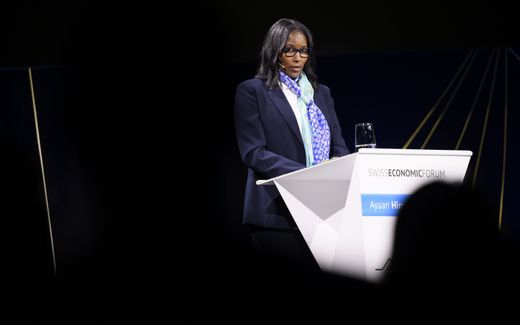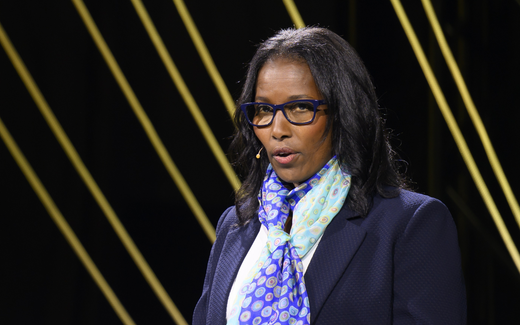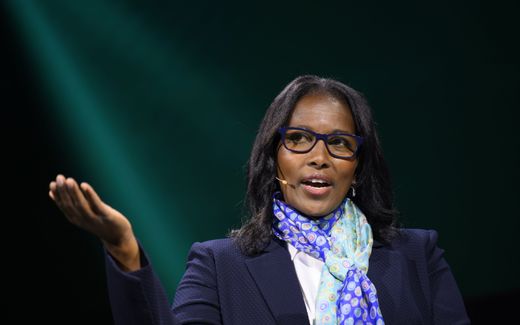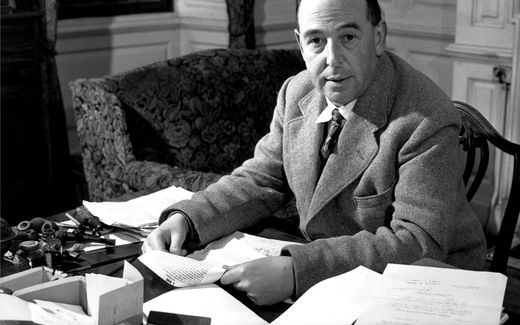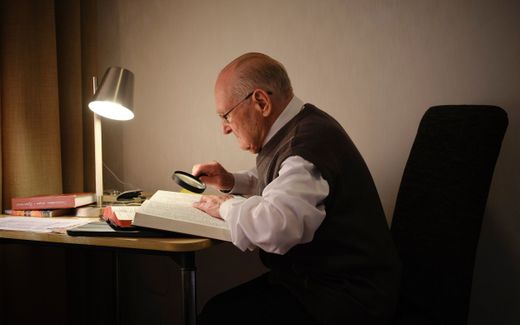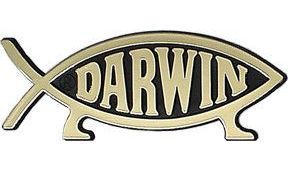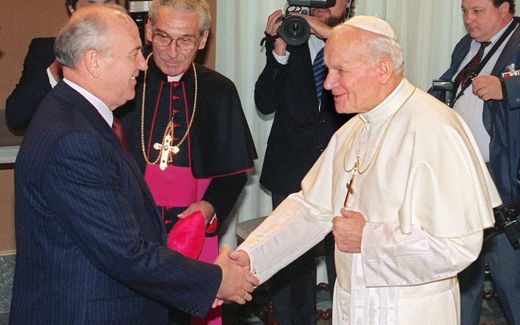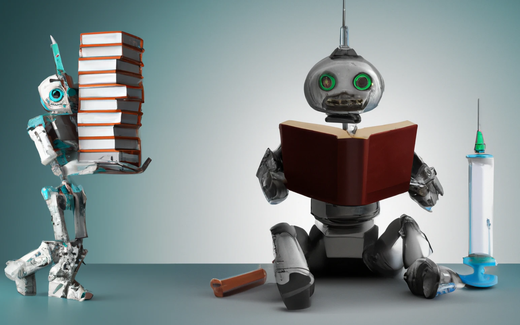Is New Atheism over? A British author thinks that Christianity is accepted again
18-12-2023
Christian Life
Maarten Stolk, RD
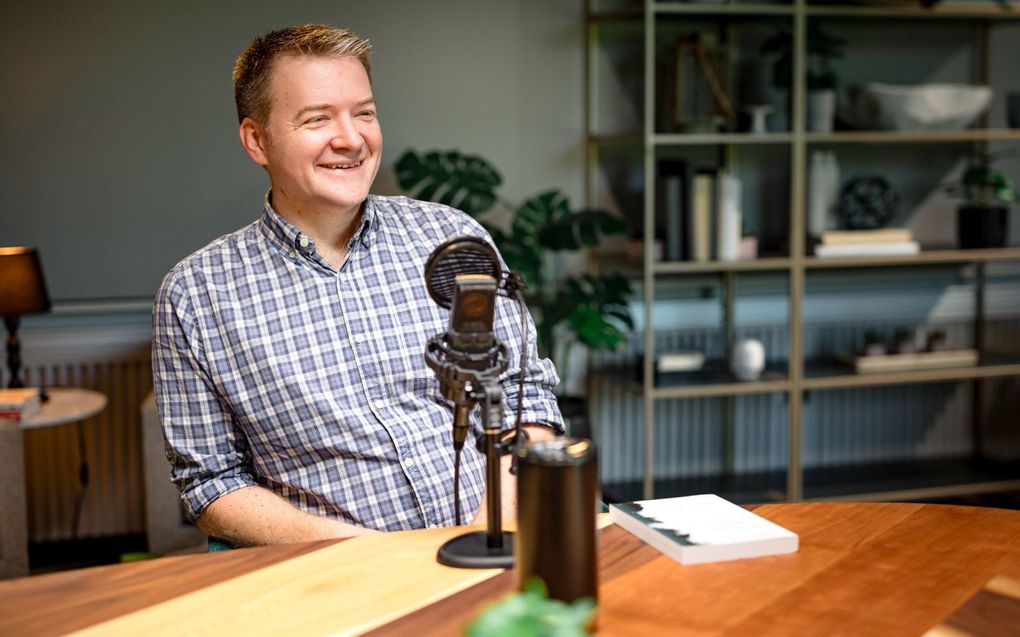
Justin Brierley believes that Christianity is growing again. Photo Brierley
Christian Life
For years, Ayaan Hirsi Ali was a staunch atheist. Recently, she became a Christian. She is far from being the only intellectual making the switch, says British writer Justin Brierley. In fact, he sees a "surprising rebirth of faith in God".
It is 2009. Suddenly, red buses are driving through the streets of London reading, "There is probably no God. Now stop worrying and enjoy life". The advertising campaign by atheists and humanists loosens tongues. After complaints from Christians, the slogan was briefly threatened with a ban, but the English Advertising Standards Authority dismissed the objections: it does not mislead consumers.
Now, almost 15 years later, Brierley still occasionally thinks back to those days. They were the heyday of so-called new atheism, he writes in his book "The Surprising Rebirth of Belief in God" published last month. Philosopher Daniel C. Dennett, neuroscientist Sam Harris, journalist Christopher Hitchens and biologist Richard Dawkins, also called the "four horsemen" of Revelation 6, fought against anything that smelled even remotely of Christian faith.
Brierley worked for many years at British station Premier Christian Radio, for which he presented the popular programme Unbelievable?. In it, Christians and atheists discussed views for and against faith and religion.
"When secular intellectuals refer people back to Christianity, these may be the first signs of a turning of the tide" – author Justin Brierley
"The new atheism was really becoming something big at the time," Brierley says over the phone. "Richard Dawkins' book "The God Delusion" was selling really well. There was an atmosphere where Christianity was seen as anti-science, a childish fairy tale. I wanted to do something about that: by getting intelligent atheists and intelligent Christians to talk to each other, so that Christians would see that their faith could also hold its own intellectually."
You have seen atheists convert, but also Christians lose their faith. What did that do to you?
"I think very few people have come to faith directly through the programme, because it takes more than just an argument for the existence of God. But I do know it has been significant for some on their journey to Christian faith.
On the other hand, strong arguments from atheists are never the only reason why people lose faith in God. They too were already travelling in a certain direction and may have been confirmed in their objections to Christianity.
I let people form an opinion. It is ultimately up to God what He does with it."
You interviewed outspoken atheists and noticed a shift in tone and content. What showed that?
"The broadcasts started in the heyday of the new atheism, when Christianity was not taken seriously at all. But over the years, I noticed that the tone changed. Some guests increasingly distanced themselves from the atheist rhetoric. "I am an atheist, but not like Richard Dawkins, mind you," was said almost apologetically.
"More and more people need something bigger than themselves: Christianity" – author Justin Brierley
I think this was partly because the new atheism itself took on a religious tinge. The leaders of the new atheism were the high priests, their books the sacred texts and scientific materialism the orthodoxy. And no one was allowed to question that. I think some people were beginning to become tired of the condescending attitude towards religious people.
In addition, the atheist movement began to splinter. God does not exist and religion is bad for you: they agreed on that. But beyond that? Some thought atheism should focus more on social justice, while others saw it mainly as a bastion of free thought and reason. And so the new atheists ended up starting to fight with each other more than they had ever done with Christians.
This led to all sorts of controversies. Many atheist speakers were unwilling to share the stage with each other. Therefore, atheist conferences were cancelled. Dawkins was given the Humanist of the Year award in 2021, but it was later withdrawn.
All this shows that it is very difficult to build a movement that is actually based on a negative statement: God does not exist. There must always be a positive aspect to a movement. When the strength of the new atheism started to wane, I noticed that more and more secular guests were open to the value of Christianity, even if they didn't necessarily believe in it themselves."
Does this mean the new atheism has disappeared from the public scene?
"It still exists in different corners of the internet, but as a public movement it is increasingly fading away. Putting religion on public display has gone quite out of fashion.
The fact is, of course, that statistics still point towards secularisation. In the West, fewer and fewer people attend church; an increasing number see themselves as non-religious. But look at the cover of my book: on it you can see waves coming rolling in. Because I think the tide is turning, that faith in God is rising like a flood again.
The West cannot live much longer on the bland diet of secular materialism. It is not answering people's questions. If secular intellectuals are referring people back to Christianity, those may be the first signs of a turning of the tide."
Which conversation stuck with you in that regard?
"That with Canadian psychologist Jordan Peterson. He attracted a huge audience: mostly millennials, looking for reasonable answers and meaning in their lives. You would almost think Peterson was a Christian apologist, so often he referred to God and the Bible. Our views on human rights and dignity stem from the idea that we are made in the image of God, he argued.
I find it difficult to establish exactly what Peterson believes about God. He speaks mostly in psychological terms about the Bible. But nevertheless, he seems to open a door for many people, a gateway to take Christianity seriously. And indeed I know some people who have gone through that door and now call themselves Christians because they started reading the Bible and encountered Christ.
In my book "The Surprising Rebirth of Belief in God", I also write about other intellectuals who point to Christianity as a source of meaning. Secular historian Tom Holland, for example, shows that the values that secular humanists espouse-human rights, equality, progress, freedom and compassion-were given to them by Christianity. Secular humanism is the grandchild of Christianity. You cannot uphold these values without the Christian faith. If you cut off the roots of a tree, the fruit may hang on for a while, but eventually it will dry up and fall.
I think more and more people are starting to realise that they need something bigger than themselves. And that's why they are more open to Christianity."
Like Ayaan Hirsi Ali?
"Yes, her embrace of Christianity is a very good example and is exactly in line with what I describe in my book. After Ayaan Hirsi Ali rejected the fundamentalist Islam of her youth, she was among the new atheists. But now she writes, with multiple references to Tom Holland, that atheism and progressive woke ideologies cannot counter the great threats to civilisation. Only the Judeo-Christian narrative can truly sustain the values the West holds dear. Secular humanism does not have the roots and strength for that. It is too weak."
Getting an eye for the value of Christianity is another thing than having faith in Christ. A first step?
"Intellectual arguments can indeed play a role in someone's conversion. In conversations, I find that conviction of the existence of God is usually accompanied by an emotional journey, in which people are searching for meaning in their lives. Returning to Ayaan Hirsi Ali, she came to the Christian story on intellectual grounds, but her article also reveals something of a spiritual quest. She wonders why we are here on earth, what the purpose of life is.
The lesson I learned from all the debates in my programme Unbelievable? is that we only reach half of who we, humans, are: the rational part. Believing, however, is also about engagement, appealing to the imagination, the heart.
There will never be an argument so overwhelming or so convincing that one could simply not raise any objection to the Christian faith. But we can remove as many obstacles as possible so that people can walk the path of faith, towards Jesus. It is ultimately about the heart - and that is something between God and man.
This also makes me cautious: there is a danger that secular intellectuals, learning to see the value of Christian faith, get stuck in a kind of cultural Christianity. Useful for the preservation of Western culture, but with no belief that the story itself is true.
Therein lies the challenge. Secular people who are attracted to the Christian faith on some level will only get the full picture when they come to know Christ, the Son of God."
You write about the intellectual vanguard, for whom Christianity has become socially acceptable. But does that also apply to ordinary people?
"To a certain extent, it is true: many conversations take place on an intellectual level. But at the same time, these people have a huge audience. Along with 12,000 other people, I listened to Jordan Peterson and his friends at the O2 Arena in London in October. Millions of people follow his podcasts or read his books. He and Tom Holland, co-host of the biggest history podcast in the world, reach a lot of ordinary people. I wouldn't underestimate their influence.
Of course, there are those who have never heard of Peterson and Holland, who do not listen to podcasts and read books, who are not interested in a more intellectual approach to faith. But everyone is looking for meaning in life, though some may articulate it differently.
Some secular intellectuals are prophets outside the church because they ask the right questions. But I believe Christianity ultimately has the answer."
The Surprising Rebirth of Belief in God. Why New Atheism Grew Old and Secular Thinkers Are Considering Christianity, Justin Brierley; published by Tyndale House Publishers; 251 pages; price € 14,99
This article was translated by CNE.news and published by the Dutch daily Reformatorisch Dagblad on December 12, 2023
Related Articles

